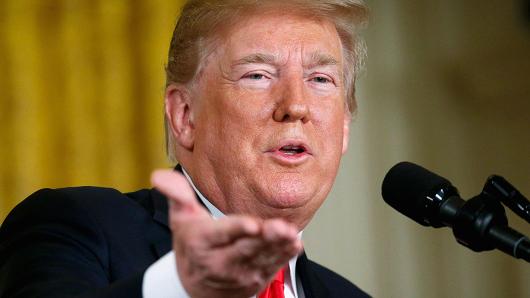 English
English

The latest cover of TIME’s magazine, featuring US President Donald Trump and a wailing child has captured the controversial ‘Zero Tolerance’ policy of the US administration.

New York: The latest cover of TIME's magazine, featuring US President Donald Trump and a wailing child has captured the controversial 'Zero Tolerance' policy of the US administration.
Creating a photo illustration of the now-reversed policy of separating children from parents who illegally enter the United States, the July 2 edition of the magazine captioned it, "Welcome to America". The picture of the child, featured in the magazine, was clicked by Pulitzer prize-winning photographer John Moore.
Moore had clicked the picture of a two-year-old girl child, standing at the United States-Mexico border who was left behind crying as his 'immigrant' mother was detained by the police.
Also Read: President Kovind pays homage to ex-Cuban PM
TIME magazine took the picture of the child and posted on its cover page with the US President looking down upon her.
TIME’s new cover: A reckoning after Trump's border separation policy: What kind of country are we? https://t.co/U4Uf8bffoR pic.twitter.com/sBCMdHuPGc
— TIME (@TIME) June 21, 2018
TIME magazine shared the cover page on its Twitter handle and captioned it, "TIME's new cover: A reckoning after Trump's border separation policy: What kind of country are we?"
Moore had been clicking pictures of immigrants crossing the southern US border though this particular picture became the most visible symbol of the immigration debate in America.
Also Read: World observes International Yoga Day
Recently, US President Trump drew flak for his Zero Tolerance policy as part of which the children of immigrant families are left behind while the parents are termed as the "prisoners". The migrant children are labelled as "unaccompanied minors" and sent to the government's custody or foster care. (ANI)